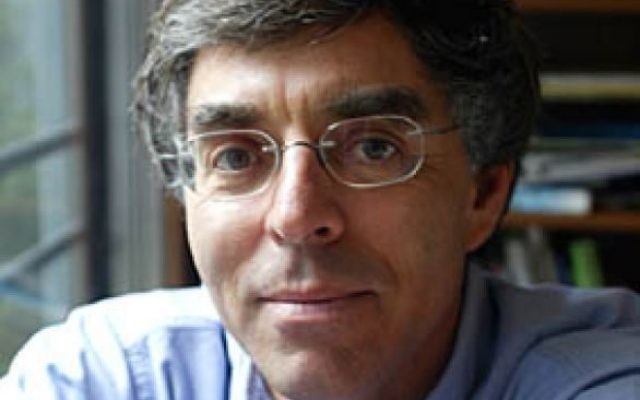Scholar Aims to Restore Kabbalah to Mainstream
Daniel Matt will be visiting Atlanta as the scholar in residence at Temple Sinai on Feb. 23 and 24.
Daniel Matt recently completed his 12-volume translation of and commentary on the Zohar, one of the fundamental texts of Kabbalah and Jewish mysticism. The project, which took 18 years, is one of the great achievements of modern Jewish scholarship.
He will be visiting Atlanta as the scholar in residence at Temple Sinai on Friday and Saturday, Feb. 23 and 24.
I spoke with him about the theme of his visit, “Restoring Kabbalah to Mainstream Judaism.”
Matt: What I am trying to do is reimagine G-d. The mystics are always asking what kind of G-d makes sense for us today, and I am trying to do that as well. What I am suggesting is that we don’t need to look at G-d as someone up there in the sky running the universe. Rather, it is more accurate to speak of G-d as an energy — an energy that animates all of existence.
For the mystics, G-d is the oneness that embraces everything. Occasionally, we can get a sense of that oneness by gazing at something wonderful in nature or falling in love. After all, what is falling in love but developing a connection of someone who is separate from you? The mystics try to expand on that by trying to connect G-d with all of existence.
AJT: Does reimagining G-d mean that you have ignore what science says about the world?
Matt: What I am really trying to say is that we ought to be humble enough and honest enough to learn from both approaches. Science and religion can each teach one another something. Religion can teach science to appreciate a sense of wonder, and science can teach religion that dogmas can be questioned and dogmas can be updated. The way science progresses is to constantly prove itself wrong. Religious thinkers are often hesitant to admit that some formulation might be incorrect.
AJT: What advice would you give to someone who might want to become a modern mystic?
Matt: One is to go slowly. We often think it is best to read straight through a book, but for the mystic, the best approach is to read a little bit and meditate. Put a book like the Zohar aside and let the words work their way through your mind without looking at the word on the page. Include some silence, some meditation every so often as you proceed. Finally, to do it in a group or with a friend or with a teacher.
AJT: How is mysticism relevant to modern life?
Matt: I think there is an ethical component to mysticism. We owe it to ourselves to reach out to others, to be open to that divine light in people, to respect that flow of divine energy that is everywhere in the universe. We need to open ourselves up to the divine image in other human beings. In a sense, the mystical kabbalist brings us back to some of the earliest, simplest formulations of Judaism. Right at the beginning of Genesis, we are told that human beings were created in the image of G-d; the kabbalist takes that very seriously.
AJT: Interest in mysticism in the modern world, particularly Jewish Kabbalah, seems to be at an all-time high. Why do you think that is?
Matt: I think some people realize the material world, which is attractive and significant, may not be the ultimate purpose for our being here. There are two things that make Kabbalah unique. One is that it doesn’t require you to leave the material world in order to find G-d. The challenge of Kabbalah is to find G-d in the world, in human relationships. Kabbalah ask us to search for what the mystics call looking for divine sparks. Look for the divine sparks in the material world. You don’t leave the material world; you try to penetrate the outer layer of existence. Also, it’s based entirely on the Bible, on the Torah, and that is so foundational.
AJT: What do you think Kabbalah contributes to mainstream Judaism?
Matt: There are three great contributions that Kabbalah makes. One is that G-d is ultimately infinite. Actually, the only correct name for G-d is infinity. The second thing is that it balances the masculine, the patriarchal description of G-d, with the feminine, what is called the Shekhinah, the feminine half of G-d. The goal of Judaism, according to Kabbalah, is to unite the Divine Couple. How do we unite them? We act virtuously. We act ethically by performing the mitzvot. If you do a mitzvah, you are stimulating the Divine Union. The third thing that is related to that is the kabbalistic notion that G-d needs us. G-d is somehow incomplete without our active participation. The mystics insist that G-d needs us to transform the world. G-d can’t do that on His own. G-d needs us to help in that, and that is a very powerful and revolutionary idea.
Who: Daniel Matt
What: Scholar-in-residence weekend on Kabbalah
Where: Temple Sinai, 5645 Dupree Drive, Sandy Springs
When: 10 a.m. discussion and 6:30 p.m. service Friday, Feb. 23; 9 a.m. Torah study and 7 p.m. lecture and dessert reception Saturday, Feb. 24
Registration: $10 for members and $15 for others for the Saturday night event, free for everything else; www.templesinaiatlanta.org




comments